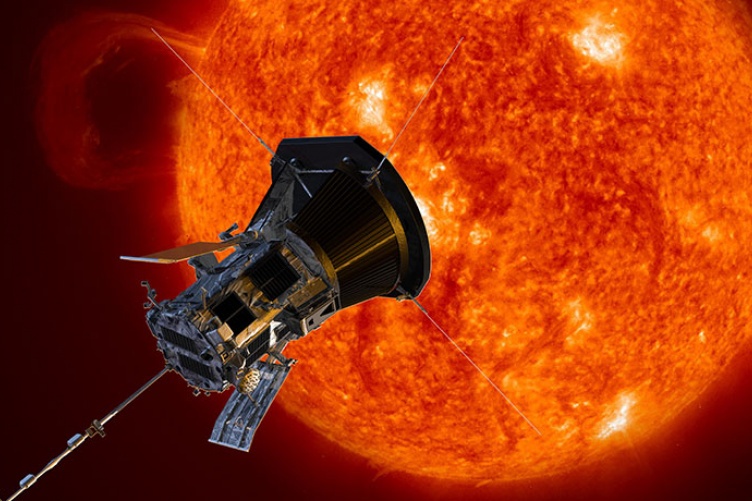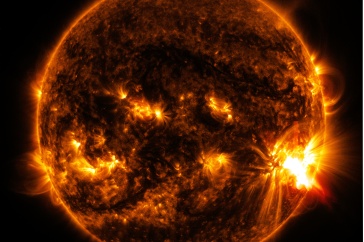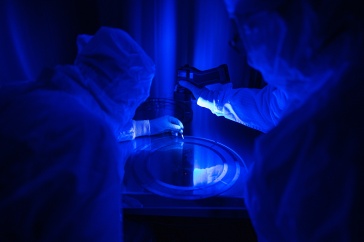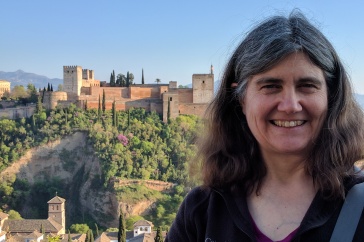
Illustration of the Parker Solar Probe as it approaches the sun. Image courtesy of JHU-APL.
For members of a team of undergraduates and recent alumni from the University of New Hampshire, their student experiences have been out of this world.
In between their class schedule and time spent with friends in the past year or two, they’ve worked behind the scenes on NASA's Parker Solar Probe mission to study the sun’s corona and solar flares. They’ve helped to lay the groundwork so that UNH can successfully host the science operations center that will process and store the data from two of the instruments aboard the probe.
This team of four — Myles Johnson ’18, Evin O’Shea ’18, Ethan Davis ’20 and Asher Merrill ’20 — has provided valuable assistance and technical input that their supervisor, Jonathan Niehof, a research scientist at the UNH Space Science Center, relies upon. When the data starts pouring in from the probe’s EPI-Hi and EPI-Lo instruments, it will be compressed and raw; essentially, it won’t make any sense. The group has been writing code that will take that data and translate it to an understandable format, which scientists can then use to further their understanding of the sun’s corona and the solar wind.
“It is phenomenally cool to be able to work on something in space. I never dreamed I'd be working on a space project, but I've always been fantastically interested in this sort of thing."
But it’s more than just writing code: They're looking at the bigger picture and working to find solutions to potential technological problems in the data acquisition and translation.
“Jonathan gives me the freedom to investigate solutions to technological problems in interesting ways,” says Merrill. “It is phenomenally cool to be able to work on something in space. I never dreamed I’d be working on a space project but I’ve always been fantastically interested in this sort of thing.”
Davis has been interested in space science for a long time, too. He’s previously worked at a NASA summer camp at Wallops Island, Virginia, teaching middle-school students about space. He spent an entire summer working with Niehof on the project, and he’ll continue working part-time during the school year.
“Working with the students is rewarding for a lot of reasons,” Niehof says. “Particularly during the summer, they have an ability to focus in on the project without all the meetings, telecommunications and other demands that can distract more senior staff. They bring a fresh set of eyes to the project, so we're constantly working to be sure everything in our processes is clear and understandable. And since they're spending time in the classroom and often tuned in to new technology, they're exposing me to new ideas and approaches that I wouldn't necessarily see otherwise.”
This is not your average work-study position, a fact not lost on these four.
“This experience has greatly helped my career,” Johnson says. “My work with the Parker Solar Probe led to a summer position at the Los Alamos National Laboratory, and so when it came time to find a job after graduation, I was very successful and had several job offers from which to choose.”
Johnson adds that the experience provided him with many practical skills associated with working on long-term projects, which really expanded his learning opportunities outside his normal classes schedule.
“I feel lucky to be able to attend UNH,” Merrill says. “Many of my friends attended other really good schools, but they haven’t had the research opportunities that I’ve had here. I’m just grateful for this experience.”
-
Written By:
Rebecca Irelan | Institute for the Study of Earth, Oceans, and Space | rebecca.irelan@unh.edu | 603-862-0990

















































